What Happens in Seven Against Thebes?

Aeschylus’ Seven Against Thebes is a powerful exploration of the archetypal themes of the curse of the father, the rivalry of brothers, and the tragic consequences of hubris and imbalance. Through the story of the war between the sons of Oedipus for control of Thebes, the play illuminates the destructive power of the unresolved shadow and the necessity of balance and order in the psyche and the city.
Summary of Seven Against Thebes
The Backstory of Seven Against Thebes
“Seven Against Thebes” tells the story of the battle between the Argive forces, led by Polynices, and the Theban defenders, led by Polynices’ brother Eteocles. This conflict has its roots in the curse upon their father Oedipus.
Oedipus, the former king of Thebes, unknowingly killed his father and married his mother, fulfilling a prophecy. When the truth was revealed, Oedipus blinded himself and went into exile, leaving his sons Eteocles and Polynices to rule Thebes in alternating years.
However, when Eteocles’ year of kingship ended, he refused to hand over power to Polynices. Outraged, Polynices gathered an army from Argos to attack Thebes and claim his rightful place on the throne.
The Play’s Action
The play begins with Eteocles rallying the citizens of Thebes to defend their city against the seven Argive champions, each of whom will attack one of Thebes’ seven gates. Eteocles positions a Theban champion at each gate to counter the Argive threat.
The chorus of Theban women expresses their fear and calls upon the gods for protection. A messenger brings reports of each individual battle, revealing that the Thebans are winning at six of the seven gates.
However, the seventh gate is to be attacked by Polynices himself, and Eteocles resolves to meet his brother in battle, despite the chorus’ warnings and pleas. The brothers kill each other in combat, fulfilling the curse upon their house.
The play ends with the sisters of Eteocles and Polynices, Antigone and Ismene, mourning their brothers. Antigone defies the edict of the new king, Creon, by resolving to bury Polynices, setting the stage for Sophocles’ famous play “Antigone.”
Archetypal Figures in Seven Against Thebes
Eteocles and Polynices: The Rival Brothers
Eteocles and Polynices represent the archetype of the Rival Brothers – the warring aspects of the self that must be integrated for wholeness to be achieved.
On a psychological level, the brothers can be seen as representing the ego and the shadow – the conscious, adapted part of the psyche and the unconscious, repressed aspects that are denied expression. Their conflict is a reflection of the lack of integration in the psyche, the failure to reconcile opposing forces.
In their fatal duel, the brothers literalize the idea that the unresolved shadow, when left to fester, can lead to self-destruction. Their mutual annihilation is the tragic consequence of the ego’s failure to acknowledge and integrate the shadow.
Oedipus: The Absent Father
Although he does not appear in the play, Oedipus, the father of Eteocles and Polynices, casts a long shadow over the events of Seven Against Thebes.
Oedipus represents the archetype of the Absent Father – the missing or failed paternal principle that leaves the children without guidance or a model for wholeness. His famous curse on his sons – that they should divide their inheritance with a sword – is a symbol of the psychic wounds that are passed down through the generations when the father archetype is not adequately realized.
In depth psychological terms, Oedipus’ absence reflects the lack of a mature masculine principle in the psyche – the Logos or structuring function that provides order and meaning. Without this principle, the psyche is left in a state of chaos and conflict, as represented by the warring brothers.
The City of Thebes: The Self
On a symbolic level, the city of Thebes can be seen as representing the Self – the whole, integrated psyche that is the goal of the individuation process.
The seven gates of Thebes represent the different aspects or functions of the psyche that must be defended and integrated for wholeness to be achieved. The attack on the city by the seven champions is a symbol of the psyche under siege by fragmented, unintegrated aspects of the self.
The defense of Thebes, then, becomes a metaphor for the ego’s struggle to maintain the integrity of the self in the face of the shadow’s onslaught. Eteocles’ fatal duel with Polynices represents the failure of this defense, the ego’s ultimate inability to achieve wholeness without confronting and integrating the shadow.
Themes and Psychological Insights
The Curse of the Father
A central theme of Seven Against Thebes is the idea of the curse of the father – the way in which unresolved psychic wounds and conflicts are passed down through the generations.
Eteocles and Polynices are not just individuals, but representatives of the House of Oedipus, a family line marked by hubris, transgression, and curse. Their fatal conflict is the inevitable outcome of the unresolved shadow of their father, the absent Oedipus.
This reflects the depth psychological understanding of the transgenerational transmission of trauma and conflict. When the father archetype is wounded or absent, when the masculine principle of Logos and order is not adequately realized, the children are left to inherit a psychic burden that they are often ill-equipped to handle.
The Necessity of Integration
At its heart, Seven Against Thebes is a powerful argument for the necessity of psychological integration – the reconciliation of opposing forces in the psyche.
The tragic end of Eteocles and Polynices is the direct result of their failure to integrate the shadow, to find a way to reconcile their conflicting claims and desires. Their rigid adherence to their positions, their refusal to yield or compromise, leads inevitably to their mutual destruction.
This reflects the Jungian idea that wholeness can only be achieved through the reconciliation of opposites, through the ego’s willingness to engage with and integrate the shadow. The play is a stark warning about the consequences of failure in this task – the disintegration of the self and the unleashing of destructive forces.
The Duty to the City
Another significant theme in “Seven Against Thebes” is the relationship between the individual and the polis. Eteocles, as the king of Thebes, has a duty to protect the city and its citizens.
Throughout the play, Eteocles is seen rallying the Thebans, positioning defenders at each gate, and making strategic decisions to ensure the city’s safety. His role as king takes precedence over his personal feelings or desires.
However, Eteocles’ duty to the city comes into conflict with his role in the family curse. By choosing to meet Polynices in battle, Eteocles prioritizes the fulfillment of the curse over his responsibility to Thebes. This decision ultimately leads to his death and leaves the city vulnerable.
The Chorus as the Voice of the Community
The chorus in “Seven Against Thebes” represents the voice of the Theban community. Composed of Theban women, the chorus expresses the fears, hopes, and prayers of the citizens in the face of the impending battle.
The chorus calls upon the gods for protection, recognizing that the fate of the city is in divine hands. They also try to dissuade Eteocles from meeting Polynices in battle, foreseeing the destructive consequences of this action.
The chorus’ role highlights the interconnectedness of the individual and the community in Greek thought. The actions of the individual, especially those of the ruling family, have profound implications for the well-being of the entire polis.
The Importance of Balance and Order
Related to the theme of integration is the idea of the importance of balance and order, both in the individual psyche and in the larger social order.
The city of Thebes, under siege by the forces of chaos and division, becomes a symbol of the psyche in a state of disequilibrium. Eteocles’ task, as the defender of the city, is to restore order and balance, to ensure that each gate is properly defended.
His failure in this task, his succumbing to the curse of his family and his own hubris, reflects the danger of imbalance in the psyche – the way in which the dominance of one aspect or function can lead to the neglect or repression of others, with disastrous consequences.
The Inevitability of Catastrophe
“Seven Against Thebes” is a quintessential Greek tragedy in its depiction of the inevitability of catastrophe. From the outset, the curse upon the House of Laius and the impending battle create a sense of impending doom.
Despite the best efforts of the characters, especially the chorus, to avert disaster, the force of fate and the destructive power of the curse propel the play towards its tragic conclusion. Eteocles and Polynices, caught in the web of fate, are unable to escape their destined confrontation.
This sense of inevitability is a hallmark of Greek tragedy. It highlights the limits of human agency in the face of larger forces, whether they be the gods, fate, or the consequences of past actions.
The Destructive Power of the Curse
The family curse in “Seven Against Thebes” is a destructive force that annihilates not only the individual members of the house, but also threatens the safety and stability of the entire polis.
The conflict between the brothers brings the danger of war to the city of Thebes. The citizens, represented by the chorus, are caught in the crosshairs of this familial strife. They pray to the gods for protection, recognizing that the fate of the city is intertwined with the fate of the royal house.
The curse’s destructive power is also evident in the play’s bleak ending. The deaths of Eteocles and Polynices do not bring resolution, but rather open up new wounds, as Antigone’s defiance of Creon’s edict sets the stage for further conflict.
The Cathartic Power of Tragedy
Like all Greek tragedies, “Seven Against Thebes” aims to evoke a cathartic response in its audience. The play’s depiction of the fall of the House of Laius and the suffering of the Theban community is intended to arouse feelings of pity and fear.
Through witnessing the tragic fate of the characters, the audience undergoes a ritual purification of these emotions. The tragedy provokes a deeper contemplation of the human condition, the forces that shape our lives, and the responsibilities we have to ourselves and our community.
In this way, “Seven Against Thebes” is not merely a story of individual tragedy, but a communal experience that binds the audience in shared emotion and understanding.
The Tragic Nature of the Human Condition
On a deeper level, Seven Against Thebes can be seen as a meditation on the tragic nature of the human condition – the way in which we are all, to some degree, bound by forces beyond our control, by the curses and conflicts of our ancestors and our own unconscious minds.
The play’s stark portrayal of the inescapable fate of Eteocles and Polynices, of their inability to escape the curse of their father despite their best efforts, reflects the depth psychological understanding of the power of the unconscious and the archetypal patterns that shape our lives.
At the same time, the play’s tragic vision is not entirely hopeless. In the figure of Antigone, who appears at the end to mourn her brothers and to insist on the burial of Polynices, there is a glimmer of hope – the possibility of a higher law, a deeper wisdom that transcends the cycle of violence and retribution.
Read About Other Classical Greek Plays and Their Influence on Depth Psychology
Classical Literature
Iphigenia in Aulis

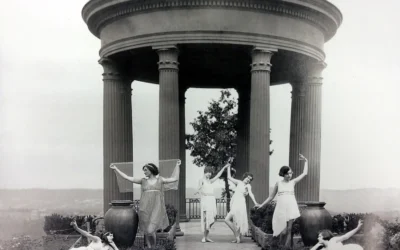




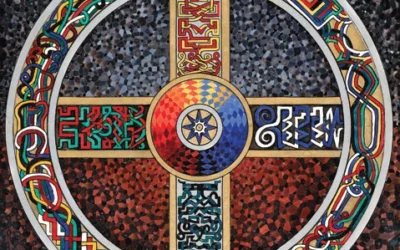
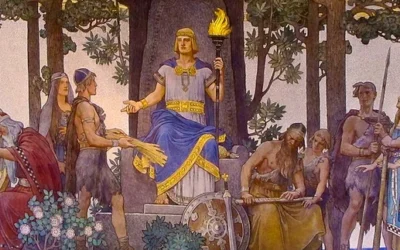


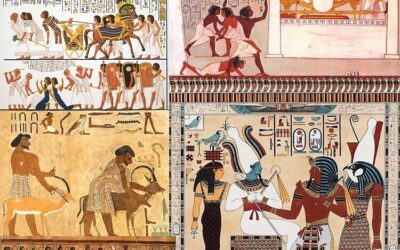
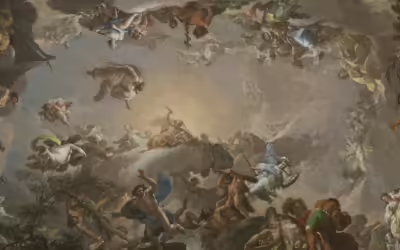
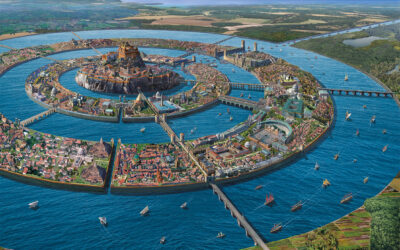
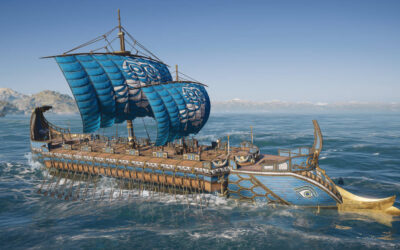

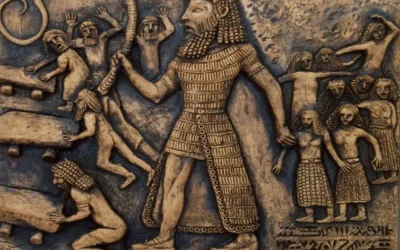
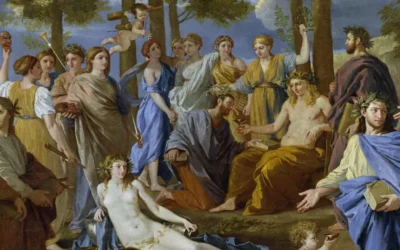
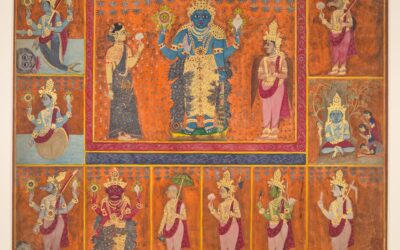
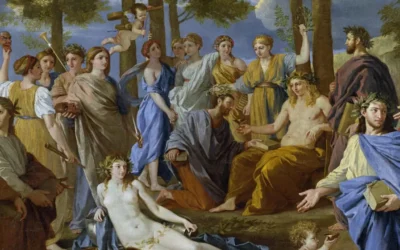
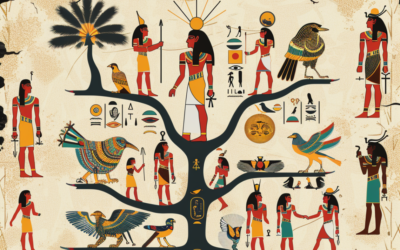
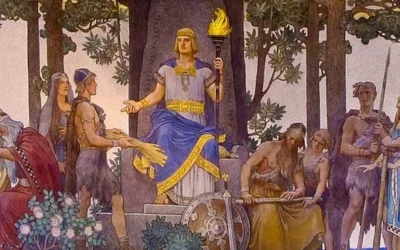
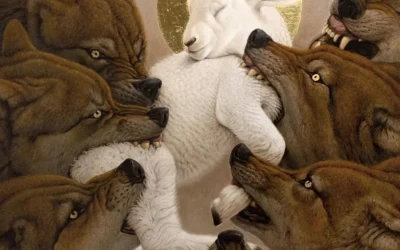
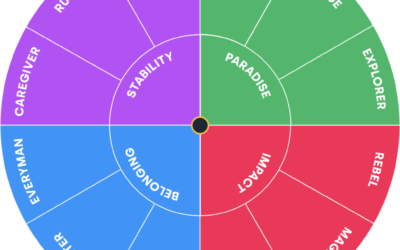
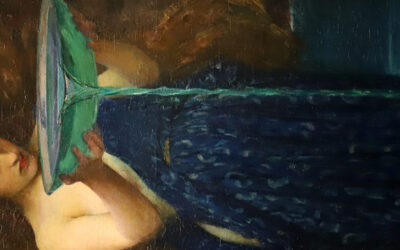
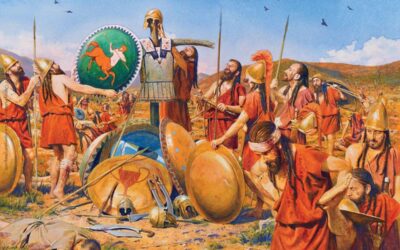
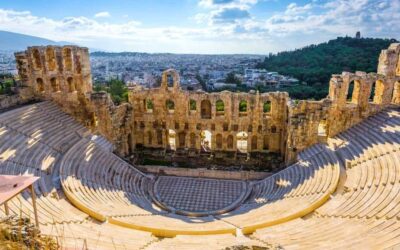
0 Comments